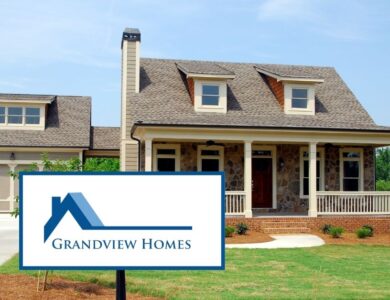Cost to Build a House in Minnesota: Total Calculation for 2024

It costs about $119 per square foot to build a house in Minnesota. So, you would have to spend $236,980 to build a 2,000-square-foot home in Minnesota. Average range $180,000 to $600,000. Compared to the national average new construction cost of $150 per square foot in the USA. These costs will vary depending on location, property type, labour expenses, material costs, etc. A new home construction can take up to 9 to 12 months.
Key Takeaways
- Average cost per square foot is $110-$175
- 2,000 sq ft home budget is $236,000-$350,000
- Total spend depends on size, finishes, property, regulations
- Labour, materials, permits add to base build price
- 12+ months typical new home construction timeline
The Average Home Building Expenses in Minnesota
It costs about $118 per square foot to build a house in Minnesota. So you would spend $236,980 for a 2,000-square-foot home. The average range is $180,000 to $600,000, compared to the national average of $150 per square foot. Costs vary by location, property, labour, materials, etc. Custom luxury homes or estates often exceed 5,000 square feet and have budgets over $1M.
Here is how an average per square foot cost of $118 breaks down:
- Land acquisition / site prep: $15-$20
- Permitting, surveys, architecture fees: $10-15
- Concrete foundation and flatwork: $20-$25
- Framing labour and lumber: $25-$30
- Roofing, exterior finish work: $15-$20
- Plumbing, electrical, HVAC: $20-$25
- Drywall, paint, flooring: $15-$20
- Other interior trim, fixtures, finishes: $15-$20
There can be significant variability around these budget estimates based on property location, custom designs and finishes, and overall project scope. Rural builds often cost 10-15% less per square foot compared to homes in metro areas. High-end luxury custom builds with premium materials and attention to detail tend to start at $175 per square foot.
Cost to Build a House in Minnesota by Square Footage
| Square Footage | Average Cost ranges |
|---|---|
| 500 sq ft | $67,500 – $87,500 |
| 1000 sq ft | $135,000 – $175,000 |
| 1500 sq ft | $202,500 – $262,500 |
| 2000 sq ft | $236,980 – $350,000 |
| 2500 sq ft | $337,500 – $437,500 |
| 3000 sq ft | $405,000 – $525,000 |
| 3500 sq ft | $472,500 – $612,500 |
| 4000 sq ft | $540,000 – $700,000 |
| 4500 sq ft | $607,500 – $787,500 |
| 5000 sq ft | $675,000 – $875,000 |
Cost to Build a House in Minnesota by Cities
- Rochester: Average Cost $109 per Sq. Ft.
- Wisconsin: Average Cost $100 per Sq. Ft.
Also read: Cost to Build a House in Wisconsin
House Construction Expenses Across States in US
| State | Average Amount |
|---|---|
| Minnesota | $236,980 |
| Pennsylvania | $270,000 |
| Wisconsin | $424,000 |
| Oklahoma | $260,000 |
| Washington | $343,100 |
| Alabama | $267,620 |
| Colorado | $299,300 |
| Alaska | $421,080 |
| Arizona | $295,580 |
| Arkansas | $251,800 |
| California | $405,440 |
| Connecticut | $345,440 |
| Delaware | $327,060 |
| Florida | $263,640 |
| Georgia | $273,860 |
| Hawaii | $412,840 |
| Idaho | $315,520 |
| Illinois | $265,440 |
| Montana | $298,960 |
| Nebraska | $210,900 |
| Nevada | $334,140 |
| New Hampshire | $299,900 |
| New Jersey | $376,900 |
| New Mexico | $290,940 |
| New York | $360,180 |
| North Carolina | $301,500 |
| North Dakota | $212,500 |
| Ohio | $222,480 |
| Oregon | $340,580 |
Also read: Cost to Build a House in Pennsylvania
Cost Breakdown to Build a House
Constructing a new home consists of several phases, each with individual expenses that compile into the total project investment.
Pre-Construction Costs
Though prep work occurs before shovels even break ground, initial development sets the stage and tone for the build.
- Land acquisition – This may be the largest upfront cost, ranging $100,000-$500,000+ depending on location and market conditions.
- Surveys, permits and fees – Approvals, connections, and prep assessments add roughly $5,000-$20,000.
- Architectural drawings and design – For truly custom homes, these professional services average $20-$50 per square foot.
- Site preparation – Demolition, clearing, grading and initial utility infrastructure often totals $15-$30k.
Primary Construction Costs
The main build comprises the majority share of investment into a new home.
- Foundations and concrete – Materials and excavating equipment/labor typically adds $25,000-$50,000.
- Framing materials and structural work – Roughly $20 per square foot; $40k for a 2,000 sq. ft. home.
- Roofing – Installation, materials (shingles, sheathing), flashings and vents average $10-$25 per square foot.
- Windows and exterior doors – Budget $10k-$30k depending on size, quantity and material quality (wood, fiberglass, vinyl).
- Siding – Varies by type/style (wood, stone, brick) but averages $10-$25 per square foot.
- Plumbing – With intricate drain lines, fixture hookups and water supply; may cost $25k+ (materials and labor).
- HVAC – Key system with central air can run $12,000+ for a 2,000 sq. ft. house.
- Electrical – Materials and wiring labor tallies between $15 and $25 per square foot.
- Insulation – Essential for energy efficiency and comfort in MN climate, averaging $6-$10k.
- Drywall and interior finish work – $15 per square foot (materials and finishing labor).
- Painting – An average of $6 per square foot; perhaps $12k for 2,000 sq. ft.
- Kitchen and bath fixtures/cabinets – Two of the most expensive rooms, ranging $30k altogether.
- Flooring – Hardwood, tile, carpeting – together roughly $10-$15k.
- Countertops – Popular granite, quartz or marble tops add $7k on average.
Final Construction Phase
Wrapping up loose ends and custom accents brings a home over the finish line.
- Landscaping – Ideally budget 10% of total build cost ($20k+ for a $200k house).
- Driveway – Concrete work, asphalt or pavers cost around $5,000 on average.
- Final grading – Fine leveling for proper drainage tallies around $3k typically.
- Utilities & meters – Water, electric, gas and sewer connections add $5k approximately.
- Technology integrations – Smart home components, A/V, security install around $15k.
- Cleaning & construction waste disposal – A final thorough detailing before move-in ($2k+).
- Inspections & certificate of occupancy – Mandatory final approvals, $1k.
Total = Around $236,980 to build a 2,000 sq ft Home in MN
This breakdown reflects approximate averages for construction costs in Minnesota. Numerous variables influence budgets like builder fees, design choices, property specifics and more. Generally, you can expect $180,000 on the low end up to $600,000+ for high-end custom houses.
Also read: Cost to Build a House in Oklahoma
Construction Timeline
On Average total timeline around 9-12 months.
You can expect approximately:
- 4 weeks for permits, design and prep work
- 8-10 weeks for foundation pouring and framing
- 12-16 weeks to complete exterior finishes like siding, roofing and windows
- 6-12 weeks for interior finish work like drywall, paint, trim millwork
- 6-8 weeks for installations of cabinetry, fixtures and flooring
- 4 weeks for final punch list tasks, cleaning and inspections
Factors That Impact Total Cost
Several important considerations influence what it ultimately costs to build a house. The main factors include:
- Location – Pricing is usually highest in the Twin Cities metro region and closer suburbs due to higher labor expenses and property costs. Outstate rural regions tend to cost $10-$20 less per square foot.
- Property attributes – Clearing trees, grading challenges, poor drainage, or soil conditions add foundation expenses. Connecting utilities on raw land also increases infrastructure budgets.
- House layout – Multi-story homes cost more for additional framing labor and finish work compared to ramblers. Full basements, garages, custom designs also enhance budgets.
- Materials selected – Upgrading appliances, flooring, lighting and finishes from standard builder packages impacts total spend. Granite countertops, hardwood floors, high-end mechanicals can be pricey.
- Green building methods – Energy efficiency upgrades like better insulation, solar panels, geothermal HVAC increase upfront costs but deliver long term savings.
- Permits and regulations – Complex county and municipal processes, energy codes, stormwater rules also factor into pricing.
Ways to Reduce Costs
If your dream home visions surpass budgets, consider a few ways to scale back expenses without wholly compromising wish list desires:
- Size down square footage as able
- Construct in phases/stages over years
- Use some pre-fab components like SIPs panels for walls or trusses
- Take on a few reasonable DIY tasks like painting or landscaping
- Research rebate programs for efficient equipment
- Opt for lesser-expensive siding like vinyl or fiber cement instead of stone or brick
- Stage non-essential interior rooms like a basement until further down the road
Key Construction Funding Options in Minnesota
- Personal savings – Self-funding with your own cash reserves allows maximum control but can tie up your assets. Determine feasibility based on total budget versus savings.
- Mortgages – Many banks offer construction loans that are later converted to traditional mortgages once building completes. Requirements include good credit, income verification, and cash reserves.
- HELOCs – Home equity lines allow borrowing against existing home value at variable interest rates. This route works best for more modest budget projects or final finish phases.
- 401(k) / IRA loans – You can leverage your retirement savings temporarily but should aim to repay quickly to avoid penalties. Generally not ideal as primary funding means.
- Investors – Seeking private financial partners willing to fund all or part of construction in exchange for shared ownership brings risks but also creative financing potential.
- Contractor financing – Some builders offer in-house lending products that combine aspects of personal loans and mortgages over the home build timeline. Provides convenience yet also limitations.
- Crowdfunding – While still relatively novel, web-based platforms enable multiple small investments from the crowd. Allows creative funding but success depends on effective marketing and reasonable terms.
Benefits of Building Your Own Home
- Personalized Design – Craft a home matching your aesthetic style and specialized spaces.
- High-Quality Materials – No need to compromise; select the finest, long-lasting materials within budget.
- Ideal Layout – Tailor room sizes, configurations and traffic flow to suit your lifestyle.
- Energy Efficient – Utilize the newest insulation, appliances and sustainable equipment for lower utility bills.
- Customized Technology – Integrate smart home automation, A/V and security per your unique preferences.
- Cost Control – Weigh trade-offs upfront to allocate spending aligning with priorities.
- Equity & Value – While a major investment, you boost home value and net worth with a customized asset.
- Pride of Ownership – Enjoy special satisfaction and memories in a home designed around your family.
Building vs. Buying a House: What is The Differences
Building a custom home involves working with architects and contractors to design and construct a new dwelling from the ground up based on your preferences. This route allows personalization but requires significant upfront investment and a lengthier process before move-in ready.
Purchasing an existing or spec home provides a quicker route to homeownership, with the ability to tour completed dwellings, promptly close and move in rapidly. However trade-offs come with fitting your lifestyle into predefined layouts and finishes that likely demand some degree of compromise. You also finance higher asking prices set by the market.
- Timeline: Constructing a residence averages 9-12 months with numerous sub-projects from initial prep work to final punch list tasks, inspections and certificate of occupancy. Alternately, buying a completed home allows moving in soon after closing within 30-45 days typically.
- Cost: While heavily influenced by size and amenities, building expenses run around $100-$200 per square foot. Buying means paying current real estate asking prices – averaging $275 per square foot but ranging $200-$500+ depending on competition.
- Customization: New construction allows personalized design suited exactly to your tastes and lifestyle for spaces, features and technologies. Purchasing limits most changes beyond cosmetic updates like paint colors or minor renovations.
- Site Selection: Building gives control to select/analyze the exact site and neighborhood. Home shopping narrows options to available properties listed within parameters.
The best path depends on variables like budget, timeline, design needs and market conditions. Weigh benefits like customization for new construction against existing home efficient
Bottom Line Cost to Build a House in Minnesota
While a major investment, building a custom home tailored exactly to your needs and preferences can yield many years of comfort and creation of meaningful memories. With prudent planning guided by accurate cost data, budget-savvy decisions, and a reliable construction team, you can craft your Minnesota dream home within a realistic budget.
Frequently Asked Questions (FAQ)
In Minnesota building a house costs about $119 per square foot. So, you would have to spend $236,980 to build a 2,000-square-foot home in Minnesota. Average Range $180,000 to $600,000.
In most cases it is cheaper to buy an existing home in Minnesota rather than build new construction. Building costs average around $118 per square foot, so a 2,000 sq ft home would cost roughly $236,000 to construct. Home prices vary widely based on location and market conditions, but expect to pay 10-15% less for an comparable existing house.
Yes, you can self build your own home in Minnesota as an owner-builder. However, this is an extensive DIY undertaking requiring architectural plans, permitting, subcontracting trade work, and learning construction techniques yourself. Using a licensed general contractor vastly simplifies the process while ensuring code compliance.
The typical timeline to build a custom home is 9-12 months on average in Minnesota. Time factors include permitting, site prep, material lead times, weather delays and finish work intricacy. Rushing the schedule risks quality and structural issues.
Construction costs for a 2,000 square foot custom home in Ontario $320 per square foot.
Current building expenses in Georgia average $136 per square foot. Constructing a 3,000 square foot home on average $408,000.The exact total depends on if you build in an urban or suburban Atlanta location versus a rural small town site.




